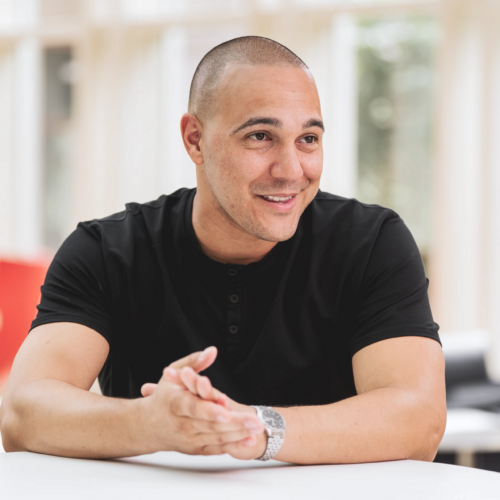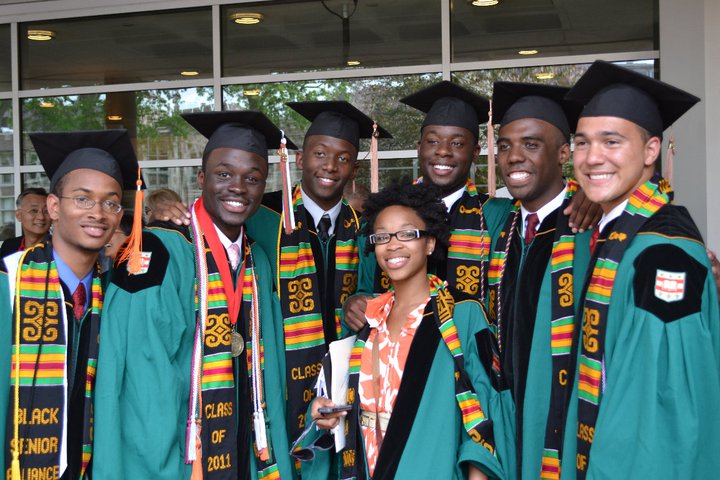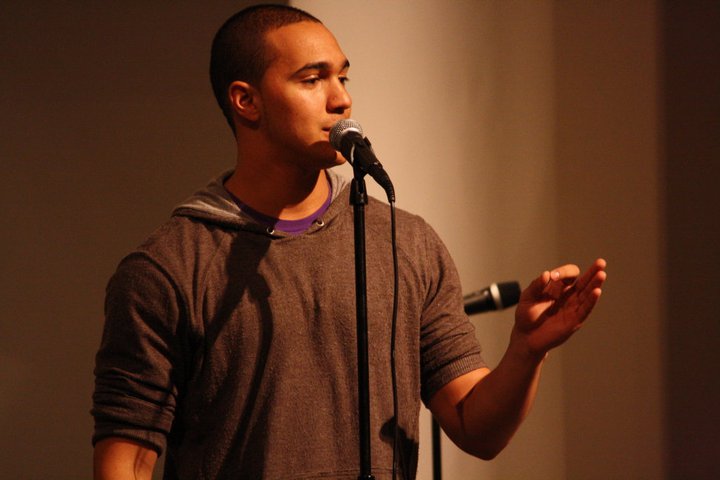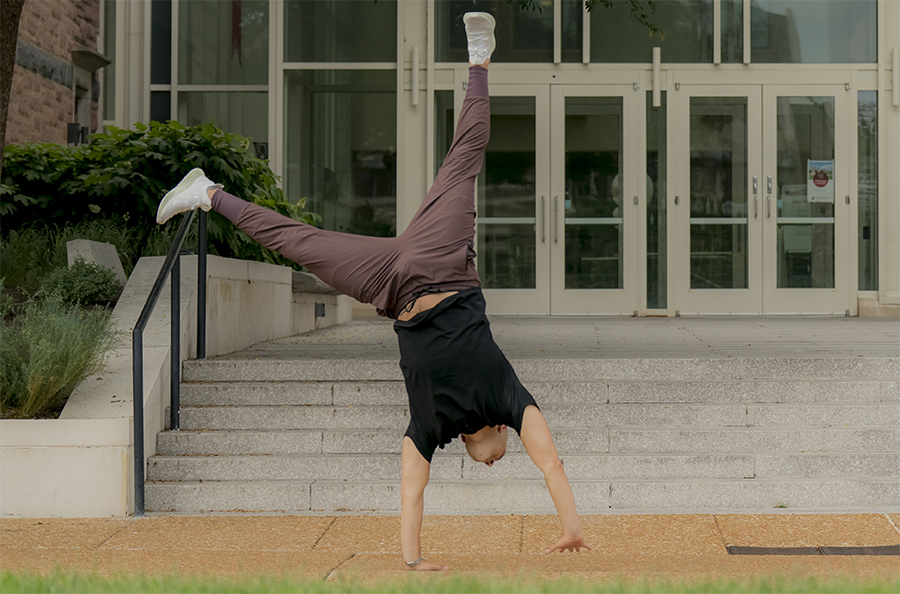Aaron Samuels defies labels.
He is a spoken word artist and a published poet, author of the 2013 collection Yarmulkes & Fitted Caps. He is a corporate strategist who worked at Bain & Co. and an entrepreneur who co-founded and served as chief operating officer of Blavity, the largest global Black media company for millennials and Gen Z. While a student at Washington University, he danced on the salsa team while delving deeply into his academic passions for economics and philosophy.

And yet, there is a central force that grounds and guides Aaron’s layered journey. It has to do with the pride he takes in his intersectional Jewish and Black identities and the lasting relationships he has formed with other people of color in their efforts to explore and affirm the Black experience in all its complexity. You might think of it as “Black gravity,” a term coined at WashU and adopted by Aaron and some of his peers in the John B. Ervin Scholars Program when reflecting on the powerful pull they felt toward each other as undergraduates on WashU’s campus. Over time, “Black gravity” has led to lasting, powerful connections in their adult lives. In Aaron’s case, he helped build an entire digital platform based on the concept, condensed to “Blavity,” together with three of his WashU colleagues.
“In many ways, how I came into adulthood, my understanding of values came directly from the Ervin program,” Aaron says. “When we created Blavity years later, one of our models was the strength of that community at WashU. We wanted that same feeling of love, of respect, of Black people looking out for one another.”
Ervin wasn’t just a scholarship program … In addition to that, it was very much a training program in love. And a training program in leadership and service, all of which was designed to promote a certain type of excellence that was very selfless in the way that it was applied to community.
Aaron Samuels
Named for the nationally renowned educator and first African American dean of what was then called WashU’s School of Continuing Education, John B. Ervin, the program offers full- or partial-tuition scholarships for the duration of students’ undergraduate careers. Beyond funding, it provides enrichment programming that fosters four pillars of excellence: academics, leadership, community service, and diversity.
Aaron describes the scholarship he received through the Ervin program as “game-changing,” noting the juxtaposition of growing up “on the lower end of middle class” while also inhabiting a world of academic and knowledge privilege as the son of two psychologists with doctoral degrees. “It was an interesting way to grow up, because both my parents were highly educated,” he says. “I was never worried where the next meal was going to come from, but it would have been very difficult to afford WashU. Getting a full scholarship to attend college was very, very impactful.”
Of the sense of community and family that the Ervin program fostered, Aaron says, “Ervin wasn’t just a scholarship program. The scholarship was great, and being able to have a full ride was a huge blessing that made a big difference. But in addition to that, it was very much a training program in love. And a training program in leadership and service, all of which was designed to promote a certain type of excellence that was very selfless in the way that it was applied to community.”
There was very much a kind of expectation that once you crack something, once you figure something out, it’s your job to then mentor the next generation of students, even if they’re just one year younger than you.
Aaron Samuels
He recalls the rigorous orientation Ervin provided when he first arrived on campus as a first-year, noting that he was supported “from day zero.” This programming included an Ervin orientation, pre-orientation, one-on-one meetings with mentors and advisers, logistical help with moving into the dorms, and more. As Aaron’s first year at WashU unfolded, this intensive support continued in the form of biweekly “family dinners” led by James McLeod, WashU’s vice chancellor for students and dean of the College of Arts & Sciences at the time. “I was so nurtured, supported, and prepped to succeed at WashU from the very beginning,” Aaron says. “That permeated my entire time at WashU.”
Another memorable feature of this community-focused, service-oriented culture of excellence was a strong chain of students mentoring other students, Aaron says. Indeed, this collaborative spirit came to be a defining element of his WashU experience.
“There was very much a kind of expectation that once you crack something, once you figure something out, it’s your job to then mentor the next generation of students, even if they’re just one year younger than you,” he says. “It was a really nice four years to spend under that type of mindset of collective victory.”
Today, Aaron is adding a new layer to the proverbial onion, taking his multi-faceted career in yet another new direction. As founder and managing partner of the venture capital firm Collide Capital, he is focused on giving entrepreneurs from historically underrepresented groups — particularly women and people of color — more equitable access to funding that will help them bring their ideas to market. While young, Collide looks to have a promising future, having earned early support from several major institutional investors, including the University of California’s endowment, Amazon, Alphabet, Twitter, and others.
In this way, Aaron continues to live out the values he cultivated in the Ervin program and at WashU more broadly. With Collide, he is further expanding the concept of “Black gravity” and the Ervin program’s emphasis on creating empowering, inclusive, and uplifting spaces for talented students. “Each one, teach one, give and receive … It was the culture of the Black community and the culture of the Ervin program,” he says. “But I think more broadly it was also the culture of WashU.”
Your gift of any amount in support of Make Way: Our Student Initiative will help future trailblazers like Aaron find support, mentorship, and inspiration at WashU.
Learn more about Make Way.


